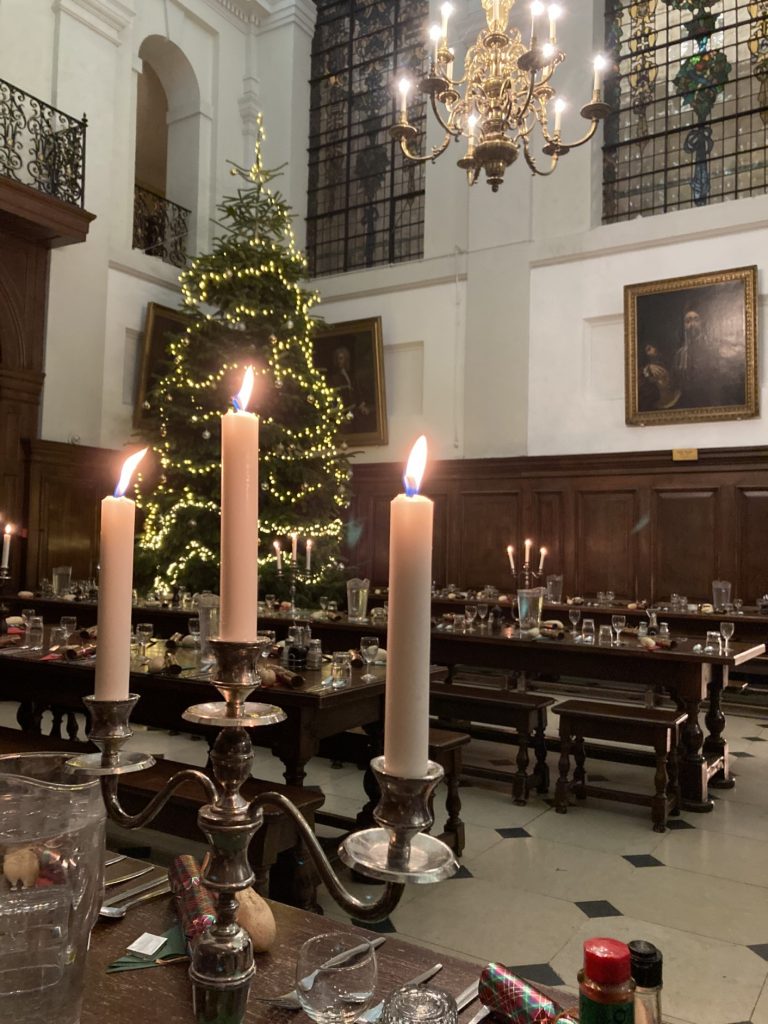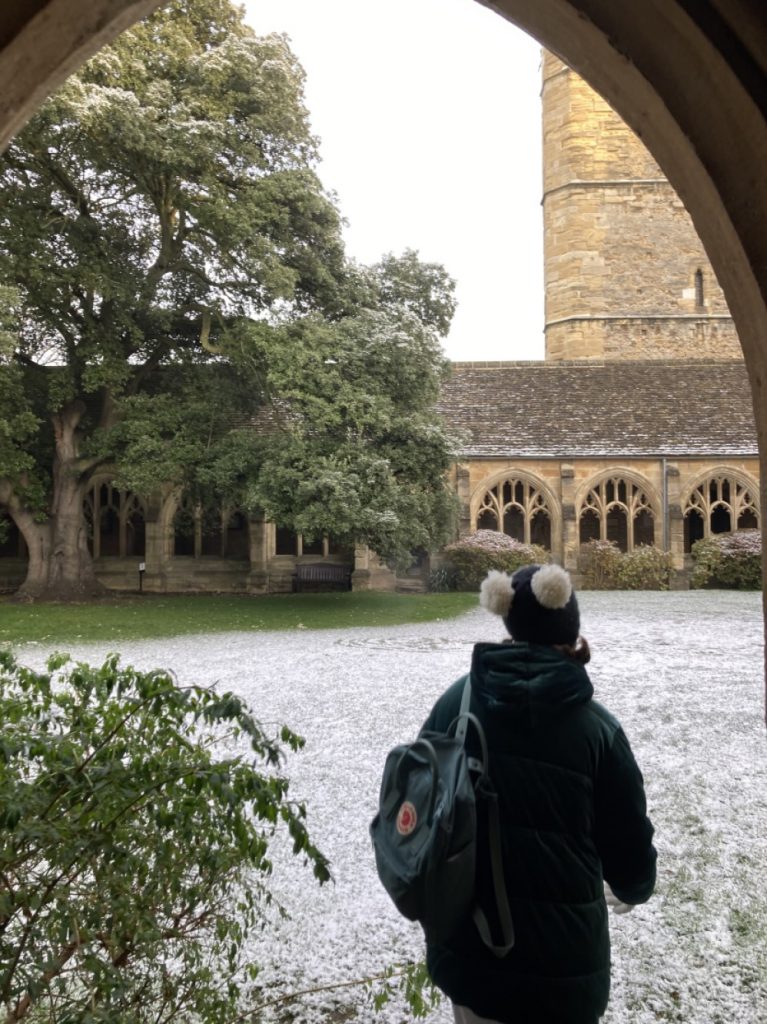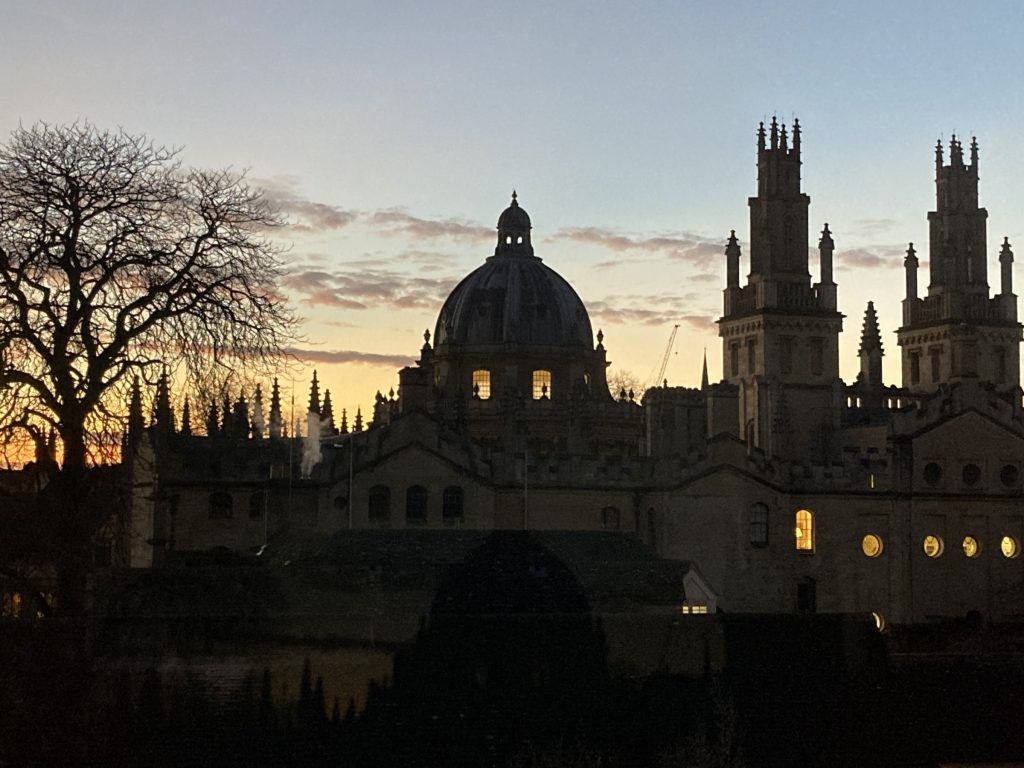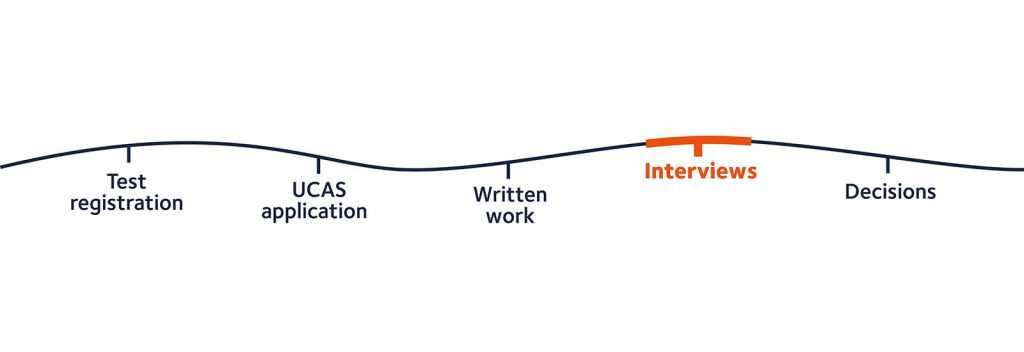1st year English and French student Holly Milton-Jefferies reflects on a festive end to her first term at Oxford.
Celebrating Christmas Day… on the 2nd of December? Yes, that’s right – here at Oxford, we do Christmas properly! Because our terms are only eight weeks long compared to the usual twelve, we end up spending the month of December largely at home, so Oxford festivities start as early as November. I never thought I’d be going out to buy an advent calendar on the 1st of November, but as this term has shown me, taking part in Oxford traditions, however strange, is usually a lot of fun.

I go to Queen’s College, who put on a lovely Christmas dinner for us. Not only did the hall look beautiful, decked out in full with a huge Christmas tree squeezed in the corner, and festive candles burning, but our college choir (the best in Oxford of course!) also came to sing us a few carols while we ate. I know everyone always says it, but my college has really made my experience at Oxford so far. Queen’s has such a friendly atmosphere; big enough that there are all kinds of different people to chat to, but small enough that whenever you walk around you’ll always get a smile from someone you know. It really does feel like home, and I think that’s one of the biggest benefits of the college system.

At the start of eighth week, we were lucky enough to get some snow in Oxford, which felt like a celebration of work winding down for the term. I was in the middle of writing my last essay in the library when I saw it through the window. There was something a bit magical watching the tired eyes of burned-out students be lit up with excitement. My friend and I took the opportunity to visit the cloisters at New College, which are famously featured in the Harry Potter films, and we certainly felt like we were at Hogwarts!
This term has definitely been a steep learning curve for me. It took me a while to get back into the swing of studying, with our A Levels so disrupted by the pandemic, but by the time the last week of term came around, I was feeling a lot more confident. I was particularly proud of the last translation I did, having spent the weeks prior to it grappling with the ever-tricky question: how much of this do I keep very literally translated, and how much can I take some creative liberties? I decided to be less strict with myself, choosing what sounded right to me over diligently sticking to the original, and the risk paid off! Walking out of my last tutorial on the way to do some Christmas shopping, with the sun setting over the beautiful buildings, I was very much getting into the festive spirit, and feeling proud of myself for navigating a difficult but fulfilling first term here.

Joyeux Noël et bonne année à tout le monde !





